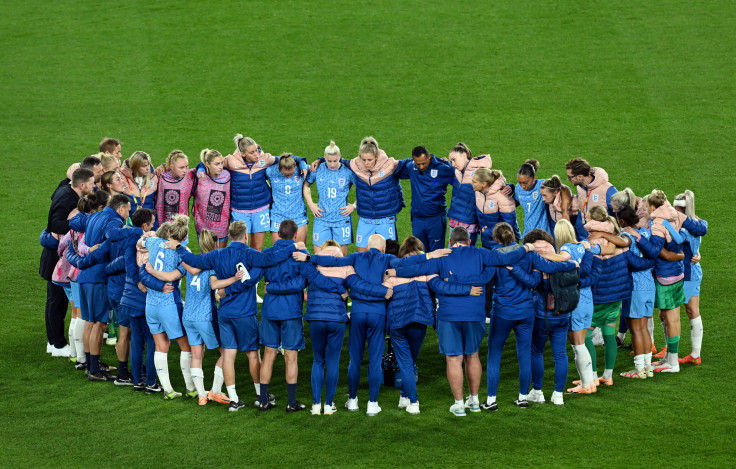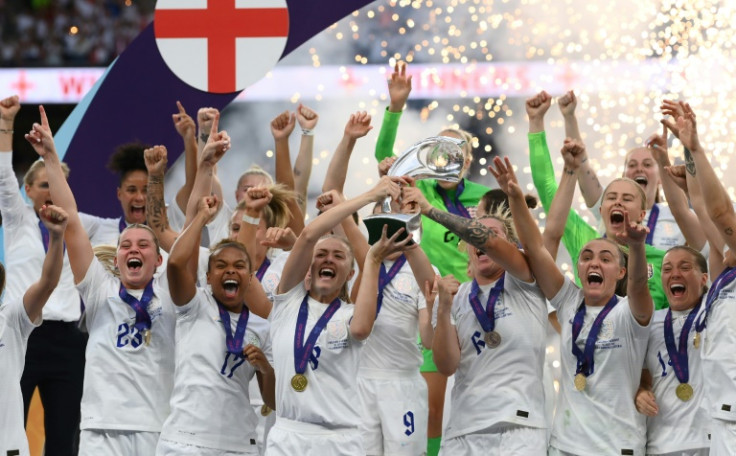
In a report published last week, the British Parliament's Women and Equalities Committee (WEC) said that the response to the high rates of elite female athletes suffering anterior cruciate ligament (ACL) injuries has been "disparate and slow."
The WEC report, published on and produced by cross-party MPs on International Women's Day last week, was dubbed: "Health Barriers for Girls and Women in Sport."
While urging the sports sector to research the contributing factors to ACL injuries, the report also declared that the industry must increase the availability of female-specific equipment and kits.
Chaired by Caroline Nokes MP, the report highlighted how the unsuitable sportswear and equipment for women is "indicative of systemic gender inequality in sports and exercise research, which is still overwhelmingly conducted by men, looking at issues affecting men."
"We have no doubt that a health issue of similar magnitude affecting elite male footballers would have received a faster, more thorough, and better-coordinated response."
"The sports science sector's response to the ACL issue has been disparate and slow," the report went on.
The committee also exposed sportswear brands that produced a lack of football boots for women. It noted that while female footballers in the UK have enjoyed victories at club and national level, they have done so wearing ill-fitting footwear.
"In addition to the potential link to ACL injuries, there is evidence that football boots are causing broader problems for many female players," the report continued as it called on the Digital, Culture, Media & Sport Committee to implement a long-term strategy that addresses the issue.
"Few football boots designed for women are available, and those that exist are rarely stocked or promoted by the UK's leading high street sports retailers," the committee wrote.

England Striker Beth Mead MBE, Netherlands forward Vivianne Miedema, Canada forward Janine Beckie, and Lionesses Captain Leah Williamson OBE were among a group of women footballers who were forced to miss the 2023 Women's World Cup due to ACL injuries.
Sam Kerr, known for her celebratory backflips and being the top striker for Australia's national team, has recently undergone surgery on her ACL injury, preventing her from attending the 2024 Olympics with the Matildas.
Arsenal duo Mead and Miedema appeared in the England documentary Step by Step to address the issue.
"Was it one game too many?" Mead asked, revealing: "When I've looked into it, I've gone from 2,000-odd minutes to 4,000-odd minutes in a season, which is a steep jump. We want the game to go to that level, but it's keeping our bodies up to that level to do that as well."
Regarding the rising attention that women's football has endured, predominantly since the Lionesses won the UEFA Championships in 2022, the Step by Step documentary suggested that training as a professional athlete has become a relatively new experience for women footballers.
Pointing the finger at a lack of research into women's health and ACL injuries, Arsenal centre-back Williamson added: "Ultimately, I think the way you're taking women's football right now, you won't be able to increase the ticket prices or get bigger crowds in the stadiums, because you won't have players to watch."
Another report published by football's European Club Association last year also found that around 82% of European female players said they experience discomfort while wearing boots.
While sportswear brands have said they are investing in female-specific equipment, business leaders have argued that retailers have yet to stock women's football boots due to a lack of awareness about the growing business opportunity.







